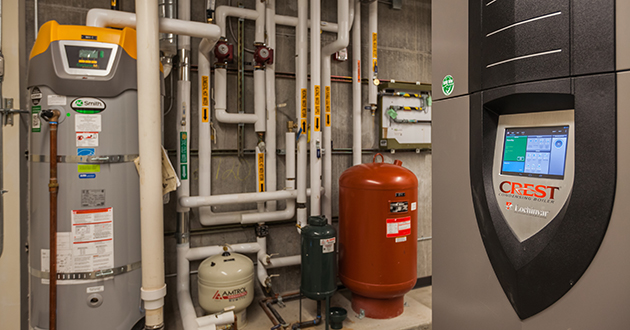
The landmark Inflation Reduction Act, passed in 2022, is expected to help millions of Americans benefit from energy efficiency and renewable energy. Those benefits are not limited to just households. The law can also benefit business owners looking to make cost-saving upgrades to their spaces.
Combined with existing Energy Trust incentives, business owners now have access to tax credits and incentives that make energy-saving upgrades more affordable and accessible than ever.
Larger tax credits mean more cash for Oregon businesses to cut energy use and costs
Starting this year, owners of and businesses that lease commercial and industrial buildings can take advantage of changes to federal tax credits and deductions that could mean more cash for upgrades that reduce their energy use and energy costs.
The Inflation Reduction Act invests billions into reducing energy use in both homes and businesses. According to the Environmental Protection Agency, nearly a third of energy created for commercial buildings is wasted. Considering energy can be one of the largest costs for businesses, the right energy upgrades can make a significant difference for the bottom line.
In Oregon and Southwest Washington there is even more support available. Those tax credits and deductions can be combined with support and incentives offered by area utilities and from organizations like Energy Trust of Oregon, to help businesses and organizations reduce their energy use and switch to renewable energy sources. Energy advisors can also offer businesses strategic support.

One of the biggest ways to increase a building’s energy efficiency is through upgraded lighting, which can be supported by Energy Trust incentives.
Higher deductions for energy-efficient buildings
The Inflation Reduction Act expands and extends the 179D Energy Efficient Commercial Property tax deduction.
To be eligible for the deduction, owners or lessees of new and existing buildings must show that the building exceeds energy-efficiency guidelines established by the American Society of Heating, Refrigerating and Air Conditioning Engineers (ASHRAE.)
As in years past, the deduction amount will still depend on how far the building’s efficiency exceeds the ASHRAE Reference Standard 90.1, but lowers the threshold – from exceeding ASHRAE’S standard by 50% to exceeding by 25%.
The deduction amount then varies, starting at $2.50 per square foot at 25% and then increasing by 10-cents per percentage point up to 50% at $5 per square foot.
Some of the biggest ways to increase a buildings energy efficiency and exceed the ASHRAE standards include upgrades to heating and cooling, water heating and lighting. Upgrades to all three would also significantly reduce a business’s energy costs.
Energy Trust offers cash incentives and support for these projects for organizations of all sizes. So, customers of Portland General Electric, Pacific Power, NW Natural, Cascade Natural Gas and Avista can save additional money on these upgrades in addition to the higher tax deduction.

Energy efficient water heaters make buildings more comfortable while saving costs. Photo courtesy of Jason Quigley.
More help with solar
The Inflation Reduction Act also increases a tax credit that can help businesses create their own renewable energy which would also significantly reduce their energy costs.
Along with homeowners, businesses can now claim 30% of the cost of installing solar and battery storage systems, up from 26% previously. Energy Trust cash incentives and accelerated depreciation combined with these tax credits could cover as much as 50% of installing solar.
Where to start
Check with local utilities for current support programs. Also, visit www.energytrust.org/commercial for more information on current cash incentives and support that may be available for your business. Energy Trust recommends consulting a tax professional to ensure available credits and deductions.
